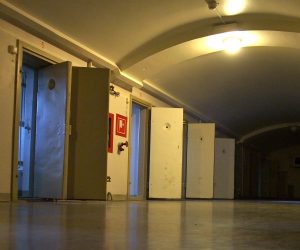
By Ryan Howes
The British Columbia Supreme Court (BCSC) and the Ontario Superior Court of Justice (ONSC) have both recently ruled that the current correctional practice of administrative segregation (or solitary confinement) is unconstitutional. Both ruled the impugned provisions of the Corrections and Conditional Release Act (CCRA) are invalid pursuant s. 52 (1) of the 1982 Constitution Act. Both granted a 12-month suspension to permit Parliament sufficient time to adjust the provisions accordingly.
The BCSC ruled that ss. 31-33 and 37 of the CCRA are invalid because they violate ss. 7 and 15 of the Charter. The CCRA procedures regarding administrative segregation permitted indefinite segregation, failed to ensure independent review of administrative decisions, and deprived segregated inmates their right to counsel at segregation reviews and hearings. The court found this amounted to a violation of s. 7 rights that could not be saved under s. 1. The psychological harm caused by segregation contributed to inmate violence more than it protected safety and the administrative safeguards in place failed to adequately address these psychological harms. S. 31(1) of the CCRA defined administrative segregation broadly as “not allowing an inmate to associate with other inmates.” The CCRA permitted segregation when it was not necessary for protecting safety and security, and was therefore found to be overbroad. The effect of these legislative and administrative failures was that mentally ill and Aboriginal inmates were disproportionately targeted for segregation. The BCSC found this amounted to a violation of s. 15 equality rights.
The ONSC decision differed in that it did not address s. 15 equality rights and the court impugned ss. 31 – 37 of the CCRA. The focus was on the procedural violations of s. 7 Charter rights. The court found CCRA permitted procedures contrary the principles of fundamental justice because it concentrated decision-making power regarding administrative segregation in the Institutional Head and lacked appropriate independent review processes. The administrative expediency that this single decision-maker model afforded was insufficient to justify such a lack of accountability, especially operating within a legislative scheme that permits indefinite segregation. The ONSC held that ss. 31 – 37 of the CCRA violated s. 7 of the Charter and could not be saved under a s. 1 analysis.
Both rulings provide Parliament with 12 months to remedy the identified procedural shortcomings of the CCRA condoned practice of administrative segregation.
Taking the two rulings together, Parliament must provide for an administrative model with greater independent review, more legislative specificity as to what and when solitary confinement is appropriate, and additional safeguards that effectively address the consequent psychological harms in order for solitary confinement to be constitutional.
Ryan Howes is a JD Candidate at the Faculty of Law and is the Asper Centre work-study student.
